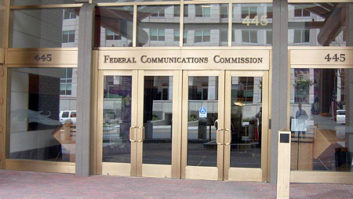Radio renewal cycle approaches
Nov 1, 2002 12:00 PM, By Harry Martin
Believe it or not, the license renewal cycle for radio stations isabout to begin. The first group of licenses are scheduled to expire inabout a year, on Oct. 1, 2003. Renewal-related activities are scheduledto begin six months earlier, with the required pre-filing announcementsstarting on April 1, 2003, and renewal applications due on June 1,2003, for stations in DC, Maryland, Virginia and West Virginia. Thecycle will then proceed through groups of states and territories attwo-month intervals.
As before, the timing of announcements, renewal applications andlicense expirations is based entirely on the state in which a stationis licensed.
The renewal applications will then be due two months later, or fourmonths prior to license expiration. Interested parties will be able tofile petitions to deny the renewal application up to one month prior tothe license expiration. Unlike prior renewal cycles, however, therewill be no opportunity for other parties to file competingapplications.
It is likely that questions regarding a station’s public inspectionfile and potential RF radiation hazards, will remain on the renewalapplication form. It is also likely that by the time renewalapplications are due, some form of Equal Employment Opportunity (EEO)rules may once again be in place.
To prepare for the renewal process, stations should review theirlocal public inspection files to make sure that everything is in order.In particular, stations should make sure that copies of quarterlyissues and program lists for each quarter since the beginning of thecurrent license term, are properly prepared and in the public file,along with copies of station licenses, contour maps, applications andownership reports. To avoid RF radiation issues, stations should makesure that any required fences are in place, in good condition and at asafe distance from the base of the tower. Fencing problems have becomea hot item for FCC inspectors, along with the posting of antennastructure registration numbers. Because the Commission has nowallocated more money for inspections, address these matters soon.
LPFM third-adjacencies studied
Congressionally mandated field tests are moving forward to determinewhether third-adjacent LPFM stations would cause interference toexisting full-power FM stations.
When the FCC created the LPFM service, it declined to includethird-adjacent protection requirements. In 2000, after broadcastersraised concerns that LPFM stations would cause interference tofull-power FM stations, Congress ordered the FCC to modify its rules toinclude LPFM third-adjacent channel distance separation requirements.The FCC complied and the new protections resulted in a diminution inthe number of LPFM applications granted by the FCC.
As part of the compromise between broadcasters and the FCC, Congressordered the FCC to conduct experimental field tests to determinewhether LPFM stations not subject to third-adjacent minimum distanceseparation requirements would cause interference to full-power FMstations and FM translator stations. Congress ordered the field testsin as many as nine FM radio markets, including urban, suburban andrural markets.
The FCC is required to release a report on the tests once they havebeen completed. The report will include the FCC’s recommendations toCongress on reducing or eliminating LPFM third-adjacent minimumdistance separations.
Meanwhile, the FCC is moving forward to finish processing theremaining pending LPFM applications. As part of this effort, itpermitted major amendments (including the specification of a newchannel) to those applications that do not propose protection tothird-adjacent FM stations because they were filed before the FCCmodified its rules to require third-adjacent protection.
In addition, the FCC has issued a list of the LPFM applications inAlabama, Arkansas, Guam, Kentucky, Massachusetts, Montana and a few inother states that it has found acceptable. Petitions to deny theapplications were due Oct. 7, 2002. Those that were unopposed could beapproved by year’s end.
Martin is an attorney with Fletcher, Heald & Hildreth, PLC.,Arlington, VA. E-mail[email protected].
Dateline:
There are no FCC filing deadlines in November or December. However,in 2003 the Commission will again require stations to file biennialownership reports and, as noted above, the renewal application cyclewill begin anew.










